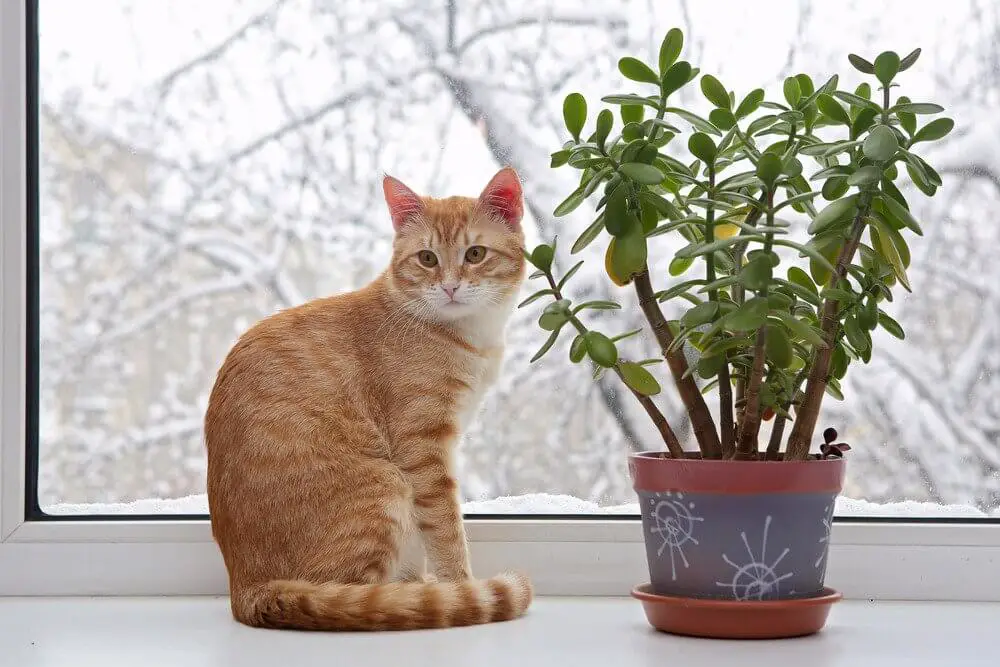The money tree belongs to the succulents and is also known under the names pfennig tree, thick leaf, and its Latin name Crassula Ovata. The decorative houseplant with the thick, fleshy leaves is a symbol of luck and financial prosperity and is, therefore, a popular souvenir. But what about the effects of the plant on cats? Here you will find the most important questions and answers.
Money Tree and Cats in Brief
- The money tree or penny tree is neither poisonous to humans nor to cats.
- The thick, rounded leaves are mostly of no interest to cats.
- If the cat has eaten money tree, larger amounts can cause harmless symptoms such as vomiting.
Is the Money Tree Poisonous to Cats?

The decorative penny tree is a harmless houseplant that does not contain any toxins. Even if the sap escapes from the fleshy leaves, there is no danger to your cat: the money tree is not poisonous for cats and can be set up in your home without hesitation. The money tree is also ideal as a gift for cat owners.
Can the Cat Nibble on the Money Tree?
Cats usually prefer grass-like plants or house plants with long, thin leaves because they are particularly good at nibbling on. The thick leaf with its small, fleshy leaves is therefore unattractive for most cats so that the house tigers don’t even think of eating the plant. But even if your cat scratches or nibbles on the leaves from time to time, there is nothing to worry about:
There is no risk of poisoning or injury to your pet.
Cat Has Eaten Money Tree – What to Do?
If consumed in excess, harmless plants such as the money tree can also lead to digestive problems. Vomiting of swallowed parts of the plant occurs most frequently. However, the symptoms usually go away on their own and do not need to be treated.
Permanent damage is not to be feared when consuming the money tree. If the symptoms persist, or if your cat has other symptoms, check to see if the plant you are eating is really a money tree or if you mistook the plant. In contrast to the money tree, some succulents and thick-leaf plants are poisonous for cats.

